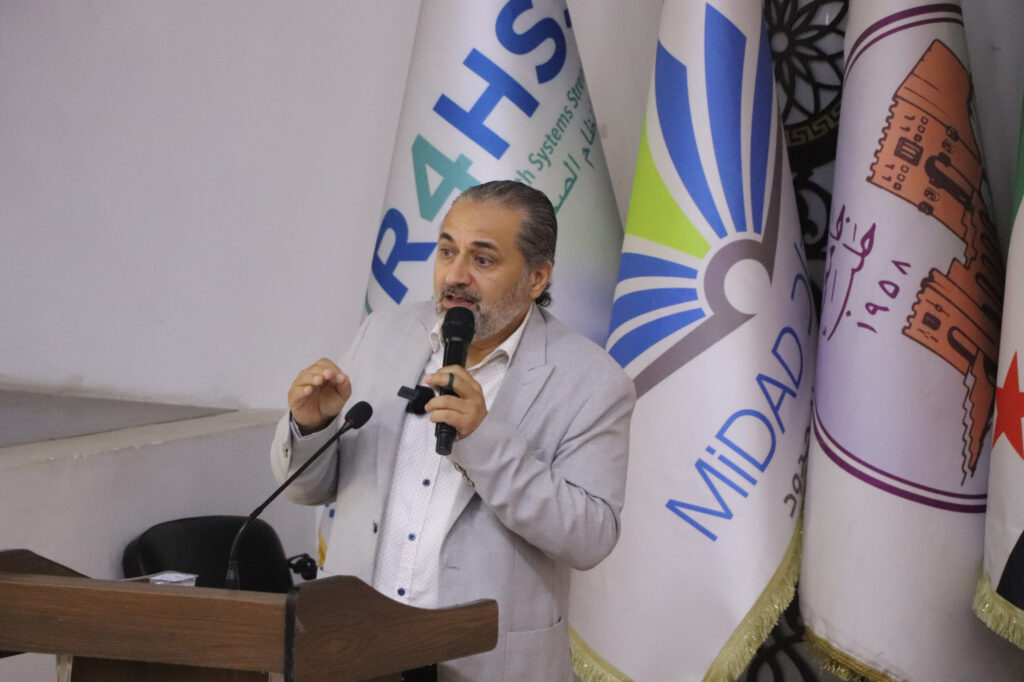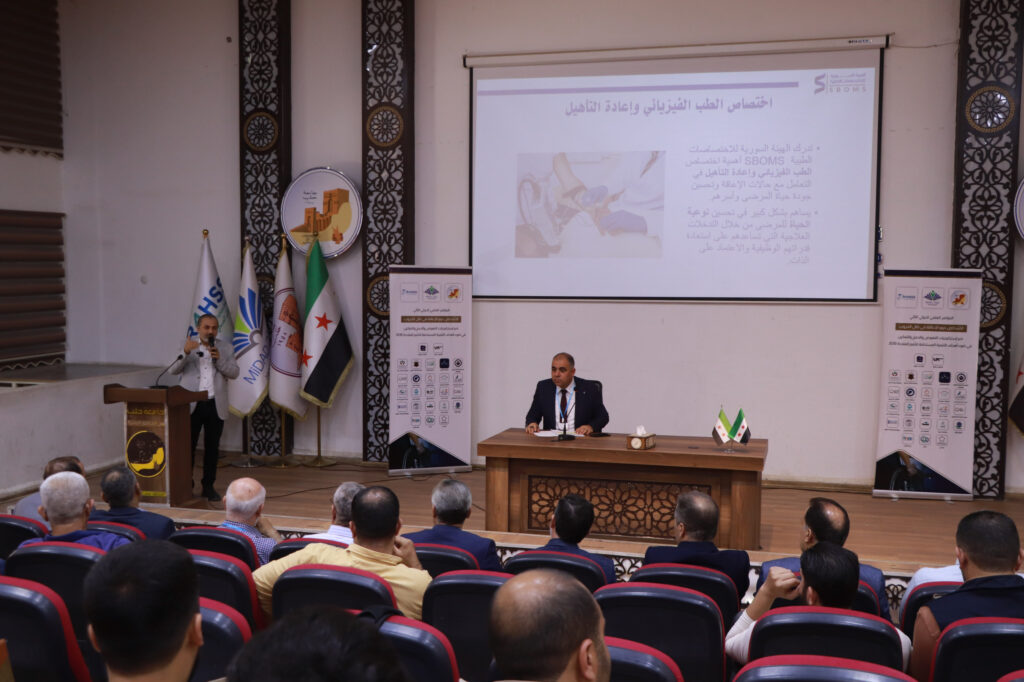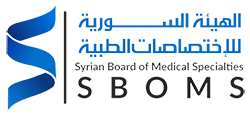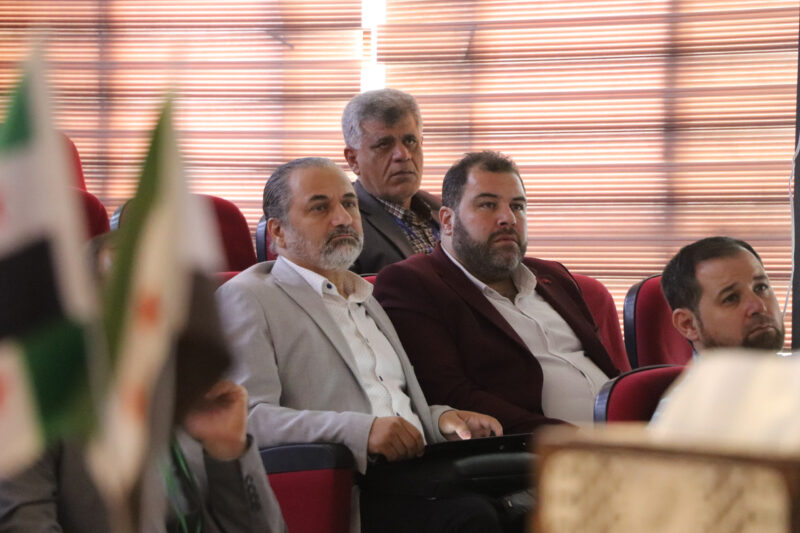The Syrian Board of Medical Specializations (SBOMS) took part in the activities of the Second International Scientific Conference titled “Persons with Disabilities in the Context of War” (Towards Strategies for Advancement, Inclusion, and Empowerment, in Light of the United Nations Sustainable Development Goals 2030). The conference, held over two days at the University of Aleppo in the liberated areas, SBOMS was represented by Dr. Wassim Zakaria and Dr. Fayez Orab
Dr. Orabi presented a detailed discussion highlighting the pivotal role SBOMS plays in enhancing the quality of life and reducing disabilities, aligning with the SBOMS vision to improve the quality of medical services in Syria. He emphasized that specialized medical education and the development of context-appropriate curricula are key strategies for achieving these goals. The presentation also addressed SBOMS’s role in offering psychological support to medical residents, particularly doctors with disabilities, by guiding them toward the most suitable specialties and providing the necessary support to help them manage work-related stress and achieve professional success.

Development of Medical Specialties
The presentation emphasized the development of medical specialties aimed at improving maternal and childcare and alleviating disabilities. Dr. Orabi emphasized the importance of pediatrics, obstetrics and gynecology, noting that enhancing care for expectant mothers, managing obstetric conditions, and providing postnatal care for children significantly contributes to reducing disability rates among mothers and children.
He also highlighted the substantial impact of introducing neonatal care for the first time in Syria, which has played a key role in reducing disabilities by improving health care for children in the early stages of life. This advancement has also led to a decrease in medical referrals abroad and a reduction in disability rates.
Emergency Surgical Interventions
The presentation further addressed the importance of emergency surgical interventions in managing critical and complex injuries in conflict zones. Dr. Orabi highlighted SBOMS’s role in training medical staff to handle these cases through specialized workshops, such as those provided by the David Knott Foundation, ensuring healthcare professionals are equipped to respond effectively to urgent and life-threatening situations.
Family Medicine Advocacy Initiative:
The presentation drew attention to the Family Medicine Advocacy Initiative launched by SBOMS last year, emphasizing the significant role this specialty plays in the care of pregnant women and children in densely populated areas, such as camps and remote regions. Dr. Orabi noted that family medicine improves the quality of life through early diagnosis and comprehensive care, reducing disabilities caused by delayed medical intervention.
Advocacy for Physical Medicine and Rehabilitation:
The presentation also emphasized SBOMS’s efforts in advocating for the development of physical medicine and rehabilitation by creating an appropriate environment for training doctors in this field and developing qualified professionals. This specialty’s mission aligns with SBOMS’s vision of improving the quality of life, enhancing health care, and reducing the burden caused by disabilities.

Scientific Research:
At the end of the presentation, the importance of scientific research supported by SBOMS was highlighted, particularly through training medical staff in research methodologies. Dr. Orabi emphasized how leveraging this knowledge to analyze real-world challenges and develop practical, evidence-based solutions can significantly reduce disabilities, thereby enhancing medical practices and elevating the standard of healthcare in Syrian society.
On the sidelines of the conference, Dr. Fayez and Dr. Wassim met with several interested stakeholders to expand discussions on SBOMS’s vital role in preventing disabilities. They underscored the need for implementing effective strategies to reduce disabilities in conflict settings, with a special focus on the role of specialized medical education in improving quality of life.

